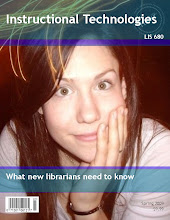
 Enter Sita Sings the Blues, a really terrific film for which a friend of mine did the sound editing. When I first saw Sita Sings the Blues, in the 2008 Tribeca Film Festival, creator (read: writer, producer, animator, editor) Nina Paley talked a lot about the difficulties she and her team faced in distributing the film, and in being granted permission (or not) to include some of the songs in it. Learn everything about the animated feature film at www.sitasingstheblues.com, and more about its copyright problems and unorthodox distribution from wikipedia's Sita entry: http://en.wikipedia.org/wiki/Sita_Sings_the_Blues.
Enter Sita Sings the Blues, a really terrific film for which a friend of mine did the sound editing. When I first saw Sita Sings the Blues, in the 2008 Tribeca Film Festival, creator (read: writer, producer, animator, editor) Nina Paley talked a lot about the difficulties she and her team faced in distributing the film, and in being granted permission (or not) to include some of the songs in it. Learn everything about the animated feature film at www.sitasingstheblues.com, and more about its copyright problems and unorthodox distribution from wikipedia's Sita entry: http://en.wikipedia.org/wiki/Sita_Sings_the_Blues.I am really inspired by these words and actions of creator Nina Paley (www.sitasingstheblues.com):
"Dear Audience,
I hereby give Sita Sings the Blues to you. Like all culture, it belongs to you already, but I am making it explicit with a Creative Commons Attribution-Share Alike License. Please distribute, copy, share, archive, and show Sita Sings the Blues. From the shared culture it came, and back into the shared culture it goes.
You don't need my permission to copy, share, publish, archive, show, sell, broadcast, or remix Sita Sings the Blues. Conventional wisdom urges me to demand payment for every use of the film, but then how would people without money get to see it? How widely would the film be disseminated if it were limited by permission and fees? Control offers a false sense of security. The only real security I have is trusting you, trusting culture, and trusting freedom.
That said, my colleagues and I will enforce the Share Alike License. You are not free to copy-restrict ("copyright") or attach Digital Restrictions Management (DRM) to Sita Sings the Blues or its derivative works."From Nina Paley's blog (http://blog.ninapaley.com/), I discovered www.questioncopyright.org, "A Clearinghouse For New Ideas About Copyright."

Paley wrote a great article titled Understanding Free Content, available here: http://www.questioncopyright.org/understanding_free_content
 Another interesting idea realized (and described in full at http://www.questioncopyright.org/creator_endorsed_mark): "The Creator-Endorsed Mark is a logo that a distributor can use to indicate that a work is distributed in a way that its creator endorses — typically, by the distributor sharing some of the profits with the creator." I think that the concept is a good one, and I hope that the belief that, "...given a choice, audiences will prefer sources that support the artist, when they have a reliable way of recognizing such sources." I'll be keeping my eye out for the mark!
Another interesting idea realized (and described in full at http://www.questioncopyright.org/creator_endorsed_mark): "The Creator-Endorsed Mark is a logo that a distributor can use to indicate that a work is distributed in a way that its creator endorses — typically, by the distributor sharing some of the profits with the creator." I think that the concept is a good one, and I hope that the belief that, "...given a choice, audiences will prefer sources that support the artist, when they have a reliable way of recognizing such sources." I'll be keeping my eye out for the mark!Here's another interesting article entitled Did You Say "Intellectual Property"? It's a Seductive Mirage: http://www.fsf.org/licensing/essays/not-ipr.xhtml.
I want to trust you, culture, and freedom with whatever I create!
